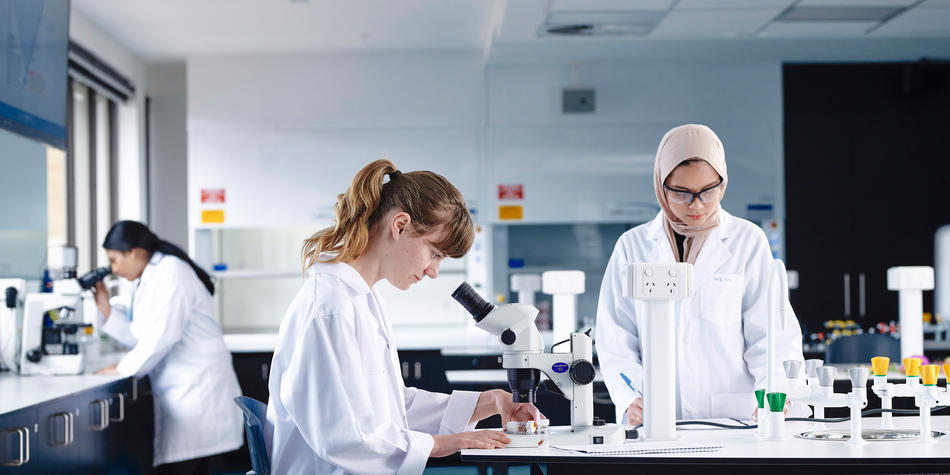Can’t decide between chemistry, plant biology or cell biology and genomics? Love science but unsure about committing to a specialist degree like environmental or marine science? Want to graduate with sound practical and personal skills that will help you secure employment in a scientific field? Deakin’s Bachelor of Science might be your perfect fit.
‘We get a lot of students who don't yet have a good idea about where they want to settle,’ says course director Dr Mark Warne. ‘If you've got more general interests in science and you’re looking for a degree that is a bit more flexible in terms of its employment options, the Bachelor of Science is an ideal choice.’
Delivering broad-based scientific training
For many students, the appeal of a generalist science degree lies in its impressive breadth. At Deakin, Dr Warne says students receive broad-based training across the sciences. In first year, for example, you’ll study biology, chemistry, physics, environmental science and maths. Over the three-year degree there’s space to study nine elective units and one or two major sequences.
‘The Bachelor of Science is good for students who have a general interest in science but aren't too sure about what path they want to take,’ Dr Warne says. ‘It offers enough flexibility to take you in a number of different directions.’
Even better, he says there’s no need to decide on majors and potential future pathways until the end of first year. ‘You have time to reflect during first year and explore your options as you’re not locked into a curriculum. Then you can make choices about the sort of direction you want to take.’
Enjoying flexibility and free choice
‘Core units often fill up the timetables of specialist science degree students, allowing very little room for flexibility and free choice. It’s a different story with the Bachelor of Science. At Deakin, students are encouraged to explore a wide range of elective units from inside the faculty as well as adjacent faculties’, says Dr Warne.
‘You might choose four elective IT units or four elective business units, which helps to expand your employability profile. There's a lot of flexibility.’
There’s also the option to study a double major. ‘You can do something you love and something that will help get you a job,’ Dr Warne says. ‘There are a lot of compatible double majors.
‘For example, many people are coming out of Australian universities with an animal biology major. So, you might choose to also major in cell biology and genomics, which is a very hot area at the moment and it's going to be a growing field of employment in the future.’
He says it’s a similar situation with environmental science enjoying increased popularity. Add a chemistry major and you become ‘a lot more employable because a lot of environmental problems have a chemical nature’.
Honing personal and practical skills for employment
Of course, there’s more to a successful science career than just science, and at Deakin you’ll also refine and sharpen what Dr Warne calls ‘personal skills’. You’ll hone a natural curiosity and propensity for discovery, finetune communication and collaborative skills, and master the ability to think creatively to find innovative solutions to complex problems.
‘These skills are built into all the different technical units you’ll study, so you'll grow as a person and develop these personal attributes,’ Dr Warne says.
Deakin also offers Bachelor of Science students a set of professional practice units that teach strategies to communicate scientific ideas, the role of science in wider society and approaches for converting a science degree into employment. ‘They enable students to develop the personal skills that will help them get employment,’ Dr Warne says.
The units run in first, second and third year, culminating in a community science project. ‘In third year, we have a unit where students work as a group to deliver a science project to a client,’ Dr Warne says. ‘It has to be delivered at high quality, and on time, just like in the real world.’
You’ll also have opportunities to complete an internship or undertake professional practice working in-house for an organisation. ‘Some students end up getting jobs with the companies they work for,’ Dr Warne says.
Plus, he says you’ll be given advice and training throughout your degree in how to communicate your personal skills. ‘It's not only important to have these personal skills – it's about being able to articulate them to an employer.’
Inspired to explore the world of scientific discovery and innovation? Learn more about the Bachelor of Science.

